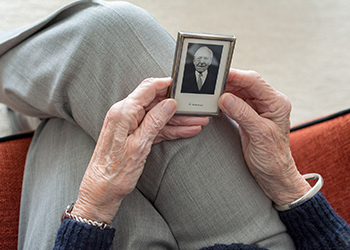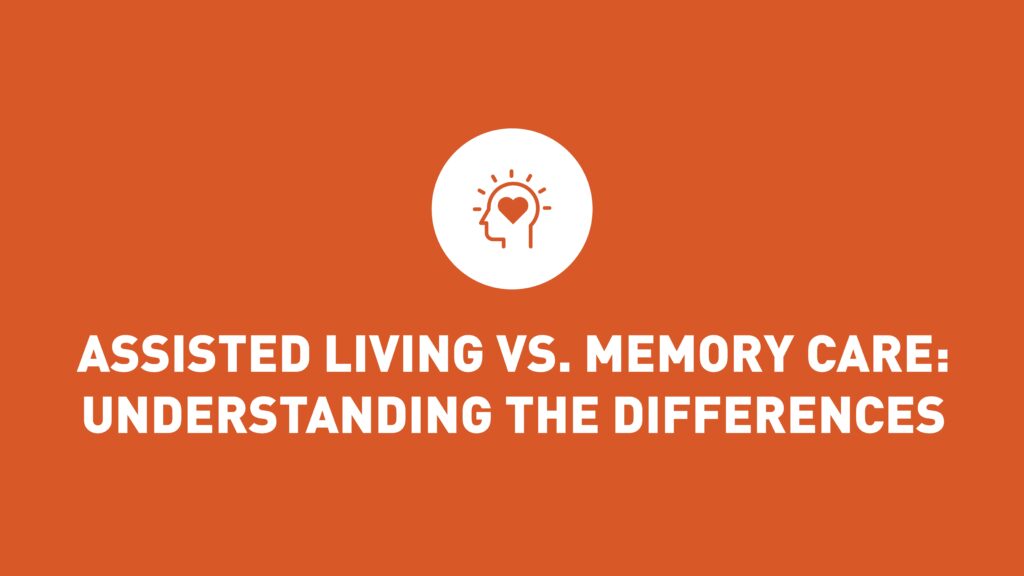Watching an elderly parent struggle with memory loss is difficult, and leads to some of the most important decisions families will ever make. It can be a confusing time, filled with pressure to find the best care for a loved one who is declining rapidly and unsafe in their current home.
During this journey families often must choose between assisted living and memory care. This blog will clarify those options and the benefits each offers to cognitively challenged seniors. This information will help families feel confident they’re making the best possible choice for their senior loved one’s ongoing health and happiness.
Understanding Memory Care and Assisted Living Care Options for Seniors
 Dementia is a progressive condition caused by various factors such as Alzheimer’s disease, brain injury, or other medical issues. Memory care and assisted living both offer residential services for people experiencing this kind of cognitive decline.
Dementia is a progressive condition caused by various factors such as Alzheimer’s disease, brain injury, or other medical issues. Memory care and assisted living both offer residential services for people experiencing this kind of cognitive decline.
Assisted living facilities can serve those in earlier stages of dementia, while memory care serves people with more advanced dementia.
3 Differences Between Memory Care and Assisted Living Facilities
These two residential care options differ in their physical environments, staffing, and services. It’s important to understand the differences to determine what’s best for your aging loved one. Below we share three differences between the two options.
1) Differences in Environment
Assisted living residents maintain some level of independence. They live alone or with a roommate in a private apartment. These communities offer group mealtimes and social activities. Seniors may structure their days as they see fit.
Memory care provides more safety and security. Disorientation leads 6 out of 10 dementia patients to wander,so these facilities keep residents safe by locking external doors and enclosing outdoor recreation spaces.
Indoor areas in memory care are designed to prevent frustration that’s common in dementia patients. For instance, circular hallways keep residents from becoming agitated at dead ends, and pictures on doors help them find their way around. Marquis takes this a step further, creating our Friendship House building interiors with colors and patterns that soothe rather than stress.
2) Staff Care and Support
Assisted living residents usually can handle some basic Activities of Daily Living (ADL) on their own, but need help with others. Staff is available as needed to help with daily tasks like taking medications or getting dressed.
Memory care residents require more help. Staff at these facilities receive extra training to handle the disorientation and agitation that advanced dementia often causes. Employees also provide more intense ADL support like helping residents eat, engaging them in stimulating activities, and accommodating physical impairments.
3) Available Services
Memory care and assisted living share some crossover in the services they provide. Both offer transportation, housekeeping, medication management, meals, and social activities.
However, memory care facilities provide extra cognitive and physical support to residents. Specialized training in dementia care is common, and skilled nursing services are available 24 hours a day.
How Do I Know if My Loved One Needs Assisted Living or Memory Care?
At some point families come to the realization that they can no longer provide the care a cognitively impaired loved one needs. Warning signs appear, either slowly or suddenly. Paying attention to these clues can help families decide which type of dementia care is needed.
For instance, forgetting to take medications but otherwise functioning relatively well may indicate it’s time for assisted living. However, more dangerous issues like wandering require the security of a memory care facility.
If you feel unsure about the level of care needed for a loved one, AARP offers a helpful checklist. Doctors can also suggest the appropriate level of care.
Look to Marquis when seeking care options for Alzheimer’s and dementia.
Marquis is here to help. We provide both assisted living and memory care. Our clinical expertise helps families feel secure that their loved one will receive the best possible care. Reach out to us for more information.
